Are you or a loved one struggling with addiction and considering rehab? Taking that first step can be intimidating and overwhelming, but it is also the most crucial one towards recovery. If you’re unsure how to get into rehab or how to get someone into rehab and what to expect, this article is here to guide you through the process.
If you or someone you care about is battling addiction and seeking treatment, it can be a challenging and daunting endeavor. However, taking that initial step towards rehab is paramount in the journey towards recovery. Understanding how to access rehab services and what to anticipate can alleviate some of the uncertainties. Allow this article to serve as a helpful resource in navigating the process and ensuring a smoother transition into rehab and eventual healing.
In this article, we will guide you through the steps of getting into rehab and provide you with valuable information on what to expect during the process. From making the decision to seek help to navigate the admissions process, we will break down each step to help you on your path to recovery and make the journey smoother.
Rehabilitation can be a life-changing experience, and by following these steps and knowing what to expect, you’ll be better prepared to embark on your path to recovery. Remember, seeking help is a brave and commendable decision; with the right guidance, you can make a positive change in your life.
How Do I Get Into Rehab?
Embarking on the journey to recovery from addiction begins with taking the pivotal step of getting into rehab. This process can seem daunting and overwhelming, but it can be a transformative and life-changing experience with the right information and guidance. In this section, we will explore the essential steps involved in getting into rehab, providing valuable insights and a roadmap to help you navigate the process.
Step 1: Acknowledge The Problem
One of the foundational steps in getting into rehab is acknowledging the problem and recognizing the need for professional help. This step represents a significant turning point in an individual’s recovery journey. Acknowledging the problem requires honesty, self-reflection, and the courage to confront the realities of addiction.
By acknowledging the problem, individuals come to terms with the impact substance abuse or addiction has on their lives. It involves accepting that their drug or alcohol use has become problematic and that they are no longer in control. This self-awareness is a critical first step toward initiating change and seeking assistance to overcome addiction.
Acknowledging the problem involves understanding the consequences of addiction, both from personal experiences and in the broader context of relationships, work, and overall well-being. It requires individuals to confront any denial or minimization of their substance abuse and to embrace the idea that seeking professional help is necessary for recovery.
This step often involves reaching a breaking point or experiencing adverse consequences of addiction, such as strained relationships, declining physical or mental health, legal issues, or losing control over one’s life. It may also involve open and honest conversations with loved ones who express concern or highlight the impact of addiction on their lives.
Once an individual acknowledges the problem, it sets the stage for seeking help and exploring available treatment options. It opens the door to a new chapter of hope, healing, and transformation. By accepting the need for professional support, individuals empower themselves to break free from the cycle of addiction and work towards a healthier, happier, and substance-free life.
Step 2: Schedule An Assessment Or Intake Appointment
Scheduling an assessment or intake appointment is a crucial step in the process of getting into rehab. This step involves reaching out to a rehab center and arranging a meeting to determine the appropriate treatment plan for your specific needs.
During the assessment or intake appointment, you can speak with knowledgeable professionals about addiction and recovery. This process is typically conducted by trained counselors or intake coordinators who specialize in addiction treatment. They will ask you a series of relevant questions to gather information about your substance abuse history, mental health, medical conditions, and any other relevant factors.
The purpose of the assessment is twofold. First, it allows the rehab center to understand the severity and nature of your addiction, enabling them to recommend the most suitable treatment approach. They will consider factors such as the substances you are addicted to, the duration and frequency of use, any co-occurring mental health disorders, and your overall physical and psychological health.
Second, the assessment helps ensure that you are a good fit for the rehab center and that the center can meet your specific needs. The meeting allows you to ask inquiries about the rehab options and treatment program, explore the various therapies and modalities offered, and better understand what to expect during your stay.
During this appointment, it is crucial to be honest and open about your addiction history and any related concerns or challenges you may be facing. This information will help the rehab center accurately assess your situation and design a treatment plan tailored to your needs.
After the assessment, the rehab center will share their recommendation with you, which may include the recommended level of care (inpatient, outpatient, or intensive outpatient), the duration of treatment, and any additional recommendations or requirements. You will also be able to discuss financial aspects, insurance coverage, and any payment arrangements.
Step 3: Make Arrangements
During this step, you will discuss the logistics of your admission, including your preferred start date, the duration of your stay, and any specific requirements or considerations. The rehab center will provide you with information regarding what to expect, what to bring, and any additional documents or paperwork required.
Arranging for your admission also includes addressing practical matters such as transportation to the facility. Determine how you will travel to the rehab center and plan accordingly, considering factors like distance, cost of treatment, payment options, and any necessary support or assistance needed for the journey.
In some cases, you may need to make arrangements for time away from work or other responsibilities during your treatment. Communicate with your employer or relevant parties to explain the need for leave or time off, ensuring you follow proper procedures and provide any necessary documentation or evidence.
Step 4: Pack Necessary Items
When it comes to packing for rehab, it is important to strike a balance between practicality and comfort. While each rehabilitation facility will have its own specific rules and guidelines regarding what you can bring, there are generally common items that can be included in your pack. This may include comfortable clothing and shoes, toiletries, personal documents, and any medications you may be currently taking. However, it’s important to consult with the rehab facility beforehand to ensure that you are adhering to their specific guidelines, as they may have restrictions on certain items.
Packing the necessary items for your rehab stay goes beyond mere logistics; it is an opportunity to create an environment that supports your recovery journey. Bringing familiar items such as a journal, books, or photos can provide a sense of comfort and familiarity during your time in rehab. Additionally, consider packing any essential self-care items that can help you unwind and relax, such as a favorite blanket or a scented candle. By taking the time to carefully pack these items, you are not only ensuring your physical comfort but also nurturing your mental and emotional well-being during this transformative period of your life.
Step 5: Arrange For Support
While the journey to sobriety may seem daunting, no one has to face it alone. It is essential to arrange for a robust support system before entering rehab. Remember, having a robust support system in place can make a world of difference during the challenging and often emotionally charged times of rehab. Family members, close friends, and loved ones are pivotal in providing emotional and practical support. Share your decision to enter rehab with trusted individuals who will lend a listening ear, offer non-judgmental support, and provide encouragement. Their understanding and reassurance can help alleviate anxiety, boost motivation, and keep you accountable for your commitment to recovery.
In addition to engaging close friends and family, consider contacting licensed therapists or counselors specializing in addiction recovery. These professionals can offer valuable guidance, coping strategies, and a safe space to explore underlying issues contributing to addiction. Support groups, such as Alcoholics Anonymous (AA) or Narcotics Anonymous (NA), are also excellent resources for building a strong support network. These groups bring together individuals who understand the challenges of addiction firsthand and can provide empathy, shared experiences, and insights into the recovery journey.
Step 6: Complete The Rehab Admission Process
The admission process serves as a critical foundation for your journey towards recovery. It allows the rehab treatment facility to gather essential information about you, such as your medical history, substance use patterns, and co-occurring disorders. This comprehensive assessment enables the treatment team to tailor a personalized plan to meet your specific needs. Additionally, the admission process provides an opportunity to discuss financial obligations, insurance coverage, and any necessary paperwork, ensuring a clear understanding of the logistical aspects of your treatment.
To complete the admission process successfully, it is typically necessary to make contact with the chosen rehab facility. This can be done through a phone call or an online inquiry form. From there, you will typically be required to provide personal information, such as your name, contact information, and date of birth. The rehab facility will likely conduct an initial screening to determine your eligibility and suitability for their program. This may involve questions about your substance use history, treatment goals, and immediate health concerns.
Once eligibility is determined, you will proceed with the formal admission process. This typically involves providing additional information such as medical records, laboratory results, and any relevant documentation related to substance use treatment. It is important to be open and honest during this stage, as it enables the treatment team to comprehensively understand your situation and develop an appropriate treatment plan.
Step 7: Commit To The Rehab Program
Commitment to the rehab program is crucial because it sets the stage for your recovery journey. It allows you to fully engage with the rehab facility’s therapeutic interventions, counseling sessions, and activities. Hence, committing to the program creates a foundation for personal growth, healing, and transformation. It is essential to understand that success in rehab requires active participation and a willingness to embrace different types of treatment methods and strategies. This commitment fosters a sense of accountability, motivation, and determination to overcome the challenges that may arise along the way.
One of the key steps in committing to the rehab program is embracing a mindset of openness and willingness. Be receptive to the guidance and expertise of the treatment professionals. Acknowledge that they have your best interest at heart and trust in their knowledge and experience. Stay open to challenging your beliefs, attitudes, and behaviors that have contributed to your addiction. Cultivate a sincere desire for change and demonstrate a willingness to do the necessary work to address underlying issues and develop new coping skills.
Another important aspect of committing to the rehab program is actively participating in the treatment process. Attend all scheduled therapy sessions, group meetings, and workshops. Engage in discussions, share your experiences, ask questions, and seek support when needed. Take advantage of the helpful resources and tools provided by the rehab facility and make the most of your time there. Remember that your commitment to the program is not only beneficial for yourself but also for others in the rehab community who are on their own journey to recovery.
What to Expect from Getting into Rehab
Even though entering a rehab center is considered an essential step on the road to addiction recovery, many can’t help but feel overwhelmed or intimidated by the prospect of entering rehab. Thankfully, understanding what to expect from getting into rehab may help alleviate fears and uncertainties, allowing individuals to make informed decisions and embark on their recovery journey with confidence.
Intake and Assessment
Upon arrival, you will undergo an intake process that involves completing paperwork, including personal information, medical history, and details about your addiction. Additionally, you will likely undergo a comprehensive assessment by the facility’s staff to determine the most appropriate treatment plan for your needs.
Addiction Detox
If you are physically dependent on drugs or alcohol, you may need to undergo a supervised detox process. This stage involves:
- Gradually eliminating the substances from your body.
- Managing withdrawal symptoms.
- Ensuring your safety and comfort.
Medical professionals provides support and strict monitoring during this critical phase.
Treatment Plan Development
Based on the assessment results, a treatment plan will be developed that addresses your specific needs and goals. The plan may include various therapeutic approaches, such as individual counseling, group therapy, family therapy, cognitive-behavioral techniques, and holistic therapies. It will be regularly reviewed and adjusted as needed.
Supportive Environment
Rehab centers create a supportive and nurturing environment conducive to healing and recovery. You will be surrounded by staff and peers who understand and empathize with your struggles. The environment is judgment-free, and individual privacy and confidentiality are respected.
Therapeutic Interventions
Rehab programs utilize evidence-based therapeutic interventions to address addiction’s psychological, emotional, and behavioral aspects. You can expect to participate in various forms of therapy, including individual counseling sessions, group therapy, and specialized workshops or educational programs tailored to addiction recovery.
Peer Support and Community
Rehab provides an opportunity to connect with others who are also on the path to recovery. You will have the chance to create harmonic relationships with peers who understand your experiences and can offer support and encouragement. Group therapy sessions and support group meetings foster a sense of community and help combat feelings of isolation.
Education On Relapse Prevention
Learning about relapse prevention strategies and stages is crucial during rehab. You can expect to receive education and guidance on identifying triggers, developing coping mechanisms, building healthy habits, and creating a relapse prevention plan. These tools will equip you to navigate challenges and maintain long-term sobriety after leaving rehab.
Aftercare Planning
As your time in rehab nears completion, the staff will help you develop an aftercare plan tailored to your needs. This may include outpatient therapy, support groups, continued counseling, sober living arrangements, or referrals to other resources that can provide ongoing support in your recovery journey.
Remember, each rehab center may have different protocols and offerings, so it’s important to communicate with the facility beforehand to ensure you understand their specific program and what to expect.
Now that you have learned the steps of how to get into rehab and what to expect in getting into rehab, let’s learn about rehab by knowing what to bring and what not to bring in a rehab center.
What To Bring To Rehab And What Not To Bring
When packing for a stay in a rehab center, it is important to adhere to the facility’s guidelines and restrictions. While specific rules may vary, here are some general suggestions on what to bring and what not to bring.
Let’s start with the things to bring in a rehab center:
- Essential personal items: Identification, health insurance information, and any necessary medication prescribed by a doctor (in its original packaging with proper labeling).
- Comfortable clothing: Pack enough clothing for the duration of your stay, including comfortable and modest attire suitable for therapy sessions and activities. Keep in mind any specific dress code requirements or restrictions mentioned by the rehab center.
- Toiletries: Bring toiletries such as toothbrushes, toothpaste, soap, shampoo, conditioner, deodorant, and other personal hygiene items that comply with the center’s guidelines.
- Communication devices: If permitted, bring a cell phone, charger, and any other electronic devices you may need. Some rehab centers, however, may have restrictions on cell phone use or may require you to surrender them during your stay.
- Books or journals: Bring books, magazines, or journals for recreation or self-reflection during your free time. Ensure the reading material aligns with the rehab center’s guidelines and is appropriate for a recovery-focused environment.
- Comfort items: It can be beneficial to bring comforting items, such as photos of loved ones, a favorite blanket, or a small keepsake, as long as they do not hinder your treatment or violate any facility rules.
- Exercise attire: If the rehab center provides exercise facilities or offers physical activities, pack appropriate workout attire and footwear.
- Medication and medical records: Bring any necessary medical records, including documentation of past treatments or diagnoses, as well as any prescription medications you are currently taking. Ensure these items are properly labeled and stored as required.
- Financial essentials: Carry some cash, debit/credit cards, and identification for any personal expenses or incidentals that may arise during your stay.
Here are the things not the bring to a rehab treatment center:
- Drugs, alcohol, or any controlled substances: Bringing these substances into a rehab center is strictly prohibited.
- Weapons or dangerous objects: For everyone’s safety, leave all weapons, sharp objects, or any potentially harmful items at home.
- Unapproved medications or supplements: Do not bring any over-the-counter medications or dietary supplements without prior approval from the rehab center’s medical staff.
- Outside food or drinks: Most rehab centers will provide meals and snacks as part of their program, so it is generally not necessary to bring your own food or drinks unless specific dietary requirements need to be accommodated.
- Valuable or irreplaceable items: Avoid bringing valuable jewelry or other irreplaceable items that could be lost or stolen. It’s best to leave sentimental or expensive items at home to reduce the risk of their potential loss or damage.
Frequently Asked Questions On How To Get Into Rehab
Whether you are seeking help for yourself or a loved one, understanding the ins and outs of getting into rehab is crucial to making informed decisions. So, let’s delve into these commonly asked questions and shed light on the steps to take when seeking help and embarking on the path to a healthier, substance-free life.
How long does rehab typically last?
The duration of a rehab program can vary depending on several factors, including the individual’s specific needs, the severity of the addiction, and the type of program they choose. Generally, rehab programs can range anywhere from 28 days to several months.
Short-term programs typically last around 28 to 30 days and are designed to provide intensive treatment and support for individuals with mild to moderate substance abuse issues. These programs offer a focused approach to detoxification, therapy, and developing recovery skills.
Long-term rehab programs, on the other hand, can last for several months or even up to a year. These programs are suitable for individuals with more severe addictions or those who may require extended support and treatment. They provide a comprehensive approach to recovery, addressing underlying issues, developing coping mechanisms, and promoting relapse prevention strategies.
Will I have to take time off work to go to rehab?
Attending rehab typically requires taking time off work. The duration of time needed will depend on the specific program you choose and the recommended treatment plan for your recovery. In most cases, rehab programs recommend a minimum of 28 to 30 days of focused treatment for optimal results.
Taking time off work to attend rehab is an important step in prioritizing your health and well-being. It is necessary to communicate openly and honestly with your employer about your need for rehab and any time-off policies that may be in place.
What is rehab like?
The daily schedule in rehab can vary depending on the specific rehab facility and treatment program. However, most rehab programs follow a structured routine to provide a supportive environment for recovery.
Here is a general outline of a typical daily schedule in rehab:
Morning Routine: The day usually begins with waking up, personal hygiene routines, and breakfast.
Group Therapy Sessions: Group therapy is a common component of rehab programs and typically takes place in the mornings. These sessions involve sharing experiences, listening to others, and participating in discussions led by a therapist or counselor.
Individual Therapy: After group therapy, individuals often have scheduled one-on-one sessions with their assigned therapist or counselor. These sessions focus on personal reflection, exploring underlying issues, working on individualized treatment goals, and developing coping strategies.
Recreational Activities: Rehab programs often incorporate recreational or therapeutic activities in the afternoon. These activities can vary and may include exercise, art therapy, yoga, mindfulness meditation, or team-building exercises.
Free Time: Rehab programs typically provide some free time for individuals to relax, engage in self-reflection, journaling, or connect with family and friends.
Evening Activities: Evenings may include additional therapy sessions, group activities, or social events designed to promote healthy socialization and bonding with others in recovery.
Bedtime Routine: Like any daily routine, the day ends with personal hygiene routines, reflection, and relaxation before getting ready for bed.
Will I have my own room in rehab?
Whether you will have your own room in rehab depends on the specific rehab facility and program you choose. Different rehab facilities have varying accommodations and rooming arrangements.
In some cases, especially in luxury or high-end rehab centers, individuals may have their own private rooms. This allows for maximum privacy and personal space during the treatment process. Having a private room can benefit individuals who value solitude or have specific needs requiring individualized attention.
However, many rehab facilities offer shared rooms or dormitory-style accommodations. Sharing a room with one or more roommates fosters community, peer support, and a supportive environment during the recovery journey. Roommates can provide encouragement, understanding, and companionship throughout the treatment process.
Can I attend rehab even if I don’t have a severe addiction?
It is possible to attend rehab even if you don’t have a severe addiction. Rehab facilities are not exclusively for individuals with severe addiction issues – they are also designed to help individuals at various stages of substance use disorders and provide support for those seeking to address their substance abuse habits.
Rehab programs can benefit individuals with different levels of addiction, including those who have recognized early signs of problematic substance use or individuals who want to address unhealthy patterns before they escalate into severe addiction. Attending rehab at an earlier stage can help prevent further deterioration of the situation and provide valuable tools and support to make positive changes.
Rehab programs offer a range of treatment services and individualized plans tailored to meet each person’s unique needs.
Can I receive treatment for other mental health issues while in rehab?
It is common for rehab programs to address co-occurring mental health issues alongside substance abuse disorder. Many individuals struggling with addiction also experience underlying mental health conditions such as depression, anxiety, trauma, or bipolar disorder. These co-occurring disorders often contribute to and reinforce addictive behaviors.
Rehab facilities that offer comprehensive and effective treatment programs recognize the importance of addressing both substance abuse and mental health simultaneously. This approach is known as dual diagnosis or integrated treatment. By addressing both the addiction and the underlying mental health issues, individuals have a better chance of achieving long-term recovery and overall well-being.
Dual diagnosis treatment typically involves a combination of therapy, medication management, and holistic interventions that target both the addiction and the mental health condition. Rehab programs employ skilled professionals, including psychologists, psychiatrists, and therapists, who specialize in dual diagnosis treatment to provide individualized care.
Is there a limit on the number of times I can attend rehab?
Rehab programs are designed to provide intensive support and treatment for individuals struggling with addiction. However, the length and intensity of each rehab stay can vary. Some individuals may benefit from shorter-term programs for focused treatment, while others may require longer-term or multiple episodes of rehab to address complex issues or maintain sobriety over time.
It is important to note that the success of rehab and long-term recovery depends on various factors, including the individual’s commitment to change, ongoing support systems, and access to aftercare resources. Rehab can provide a foundation and necessary tools for recovery, but it’s ultimately up to the individual to apply what they have learned in their daily lives.
Final Thoughts On How To Get Into Rehab
Without a doubt, taking the decision to enter a rehab program is a crucial step toward overcoming addiction and embarking on a journey of recovery. It might be daunting, but you must know that seeking and accepting help is a brave decision. Admitting that you need to change your lifestyle is a courageous act. Therefore, if you or your loved one is looking for programs for addiction treatment abroad, Costa Rica Treatment Center (CRTC) is here to help. We have everything that can help to ensure a successful recovery from addiction.
Among the best advantages of partnering with CRTC is that we have stunning and tranquil locations that empower profound healing and recovery. More than that, we have a team of experienced and dedicated professionals who are committed to helping individuals overcome their addictions. You can experience our committed professional services dedicated to everyone who wants to be free from their addiction and improve their lifestyle. Get a free evaluation or contact us to know more about our services and more.








